Isa and the Filthy Tongues - Interview
by John Clarkson
published: 14 / 12 / 2013
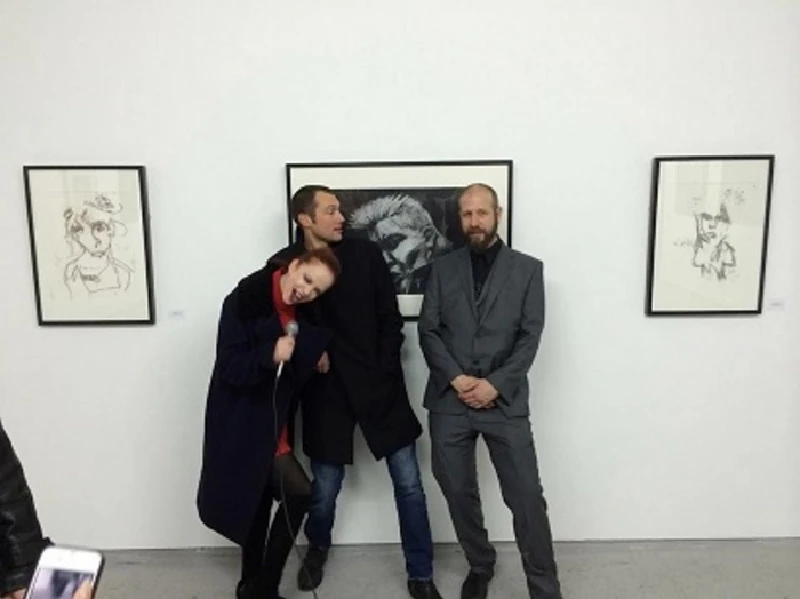
intro
John Clarkson talks to former Goodbye Mr Mackenzie front man and Isa and the Filthy Tongues member Martin Metcalfe about his new career as a painter and artist and forthcoming musical plans
Martin Metcalfe is an Edinburgh-based singer-songwriter and musician, and the ex-front man with Goodbye Mr Mackenzie, a dark alternative rock band of the late 1980s and early 1990s. “The Mackenzies”, as they were known by fans, are best known now for being the first band of Garbage’s Shirley Manson, who sung backing vocals and played keyboards for them for ten years between 1984 and 1994. They were, however, enormously popular in their native Scotland, and remain fondly remembered. Goodbye Mr Mackenzie recorded two albums, ‘Good Deeds and Dirty Rags’ (Capitol Records, 1989) and ‘Hammer and Tongues’ (Radioactive Records/MCA, 1991), and also a live and rarities compilation record ‘Hammer and Tongs’ (Capitol Records, 1989), in their original line-up of Metcalfe (vocals, guitar), Manson, ex-Exploited member “Big” John Duncan (guitar), Fin Wilson (bass guitar), Derek Kelly (drums) and Rona Scobie (keyboards). The same era of the group also recorded several classic singles including Top 40 hit ‘The Rattler’; the hard-hitting ‘Face to Face’, all of the profits of which went to the Rape Crisis Centre, and ‘Goodwill City’ which angrily hit back at a local councillor who had suggested putting AIDS victims on leper-style colonies on oil rigs. After Rona Scobie and John Duncan both left, Metcalfe, Wilson and Kelly recorded ‘Five’ (Blokshok Records, 1994), one more Goodbye Mr Mackenzie album with Manson. They also formed a short-lived second group Angelfish with Manson as the lead vocalist, which put out an eponymous album (Radioactive Records, 1994) and toured America. After Manson departed to join Garbage, the surviving trio recorded a fourth and final Goodbye Mr Mackenzie album, ‘The Glory Hole’,(Blokshok Records, 1996). Metcalfe had developed drink and drug problems, and took a sabbatical of several years from the musical industry before returning with a new band Isa & The Filthy Tongues. As well as Metcalfe on guitar, this band again features Wilson and Kelly and Metcalfe’s American-born wife Stacey Chavis on vocals. There have been two albums to date, ‘Addiction’ (Circular Records, 2006) and ‘Dark Passenger’ (Neon Tetra, 2010). It has been four years since Pennyblackmusic last interviewed Metcalfe, six months or so before the release of ‘Dark Passenger’. We meet at the same meeting-point as the last interview, a waterfront bar with a conservatory at the edge of Edinburgh’s Leith district. A lot has changed since then. Metcalfe has developed a new vocation as a painter and artist. Much of his art he sketches out on his iPhone, putting it through initial several drafts, before expanding on it in watercolours and oils. While he admits that he had not done any art since leaving school until three years ago, he cites various influences and prompts during the interview- a former flatmate and modernist painter who he once bought a painting from and whose paintings he used to sometimes housekeep; an e exhibition of Expressionist paintings he stumbled across in a tiny town on the French-Swiss border while touring with Goodbye Mr Mackenzie; the influence of David Bowie and Iggy Pop, who have also been painters; and even a local Spanish tapas bar in Edinburgh which has Picasso works lined along its walls. It is something that has clearly been brooding for years. Metcalfe takes much of his direction from pre-World War 1 German Expressionism and Pop Surrealism, and his paintings and art are largely biographical. Pennyblackmusic talks to him a few days before the launch of his first exhibition at a music venue in central Edinburgh, which will then transfer to a local art gallery. There are pictures in the exhibition of buildings from his childhood and teenage years in Bathgate, a former mining town, twenty miles west in Midlothian, and of places that he used to stay in Edinburgh. There are also paintings of people that have been important to him over the years –former and current band mates, Siouxsie Sioux, Talking Heads’ bassist Tina Weymouth who with her husband Chris Frantz co-produced the Angelfish album and various other assorted friends. Music, however, remains very much a concern. While Isa & The Filthy Tongues are in temporary hiatus, he, Derek Kelly and Fin Wilson are working on an album which they are calling simply ‘The Filthy Tongues’. He also has formed with Goodbye Mr Mackenzie producer Terry Adams a new project, initially called Martin Metcalfe and the Filth and now Martin Metcalfe and the Fornicators, which plays acoustic covers of songs from his back catalogue and is about to play its second gig a few days later. Pennyblackmusic spoke to Martin Metcalfe about his paintings and his musical career. 1.‘Porcupine’ “’It is an oil painting of the first place that I lived in Edinburgh. Derek Kelly and I moved there from Bathgate in 1979, and spent two years living there sharing a tiny room at the top of building. It was in Peffer Place directly above Oman’s bar. My aunt had lived in the same block in the late 1960s, but she had emigrated to Australia and moved on long before then. There was a brewery which is now long closed nearby at the time, and you could smell the hops from it sometimes. It was in a real no man’s land. Duddingston Loch and Holyrood Park were to the back of it, as was Duddingston itself which is quite an expensive part of Edinburgh, but Peffer Place is on the edge of Niddry, which was then one of the rougher parts of the city.” PB: Did you move from Bathgate into Edinburgh with the intention of forming a band? MM: No, we already had good bands in Bathgate. We had played gigs and made good demos. We made demos in Wilf Smarties’ studio. He had recorded the Fire Engines. He was at that point like the Martin Hannett of Edinburgh. It was really cheap, something like £4 an hour. He had a four track. It wasn’t anything bigger than that, but he was really clever with it. When we moved to Edinburgh, the groups of people that we were playing with in Bathgate re-evolved through here. We didn’t have any members through here other than Derek and myself, and people would travel through from Bathgate to play with us. What happened eventually was that we got involved with the Precious Organisation in Glasgow, which was run by Eliot Davies. He managed Wet Wet Wet and a lot of other bands. They were his soul band, and we were his Doors at that point. He wanted the Precious Organisation to be like Motown. That was his concept, and he was trying to be like an engine room of different talents. As a result of that, we started playing through in Glasgow a lot rather than in Edinburgh. We would play every few months in Edinburgh. We played at Potterrow, Teviot Row and other little gigs around about the town, but from the summer of 1984 to the summer of 1985 we stopped playing live. Eliot told us to concentrate on getting our songs sorted, so we didn’t play for a year or so. Then when we started playing gigs again in 1986 we started playing even more in Glasgow. PB: You seemed to go with your lyrics into areas that nobody else was prepared to go at the time. ‘The Rattler, your second single, attracted controversy for what was a fairly throwaway line about “eating beaver”. Face to Face’, your next single, despite being about a real incident, was banned because it was about a girl being raped and the judge letting her attackers off because she had been wearing a short skirt. Did you set out to be controversial or were you just singing about what was bothering you basically? MM: ‘Face to Face’ was definitely a from the gut song. It just came rushing out. I wrote the lyrics in twenty minutes, and wrote four verses and ended up using three. It was one twenty minute outburst if you like. The music developed separately, and we then merged it. The Sex Pistols song, ‘Bodies’ (About a girl having an abortion-Ed), was a massive influence on me. It was thrilling to hear that song and the gut emotion that came with it. Even the matter of whether John Lydon was for it or against it was exciting. That was really the saving grace of ‘Never Mind the Bollocks’ to me because after ‘Anarchy in the UK’ their next two singles, ‘God Save the Queen’ and ‘Pretty Vacant’, weren’t quite as vital and didn’t blow my mind as much as ‘Anarchy’ did. That song though really was nothing like I had ever heard before, and what it did for me was I didn’t feel afterwards that I had to stop myself from saying things. We were just a little band on a tiny label. At the time Frankie Goes To Hollywood with ‘Relax’ had written a disco song that was heard in every club in the country. They had a huge machine, so getting banned sort of helped them. We knew that releasing a song that was never going to take us anywhere. In a way it was almost suicidal, but we thought, “Why not? It is a good wee song. It deserves to go out.” PB: What was interesting that you were doing this in the late 80s when all that promise of punk and post punk had faded away and the music industry was in a very bland state. MM: ‘The Rattler’ came out in 1986, and was followed the next year by ‘Face to Face’. ‘The Rattler’ was then re-released again in 1989. ‘Goodwill City’ also came out that year. I remember there was this front cover in ‘NME’ during either 1988 or 1989. They were doing this the Heroes of the Year sort of thing, and it was the Wonder Stuff, the Darling Buds and the House of Love. The House of Love released a couple of really good songs, but otherwise were pretty unexciting. It was really awful. I mean can you even remember a Darling Buds song? These were the three poster children for the revolution at that point. 2. ‘Edinburgh St. Scene (Goodbye Mr Mackenzie, Mark 2)’ “That painting was based upon a publicity photo that we took in 1993, shortly after Rona Scobie and Big John had left the band, eighteen months or so after ‘Hammer and Tongs’. We had been asked to provide some shots of ourselves for a Germany publicity firm, and were wandering around Edinburgh with a photographer looking for locations. It was my idea to take one of the photos outside a red phone box, and that is what that painting is of.” PB: You released your first album ‘Good Deeds and Dirty Rags’ in 1987, and then went off to Berlin to record ‘Hammer and Tongs’ in 1989. Did you go there because David Bowie and Iggy Pop had recorded albums like ‘Low’, ‘Heroes’ and ‘The Idiot’ there? MM: We went to Munich for ‘Good Deeds’, and Big John went, “This is a fucking shite city. Let’s go to Berlin next time. It’s fucking great there,” so we went, “Alright, John. We’ll try that” (Laughs). Terry Adams, who was our producer, and I went over to look at studios. We had a list of four studios, and went around and had a look at places, and we liked this old studio Hansa Ton in particular. It wasn’t especially high tech, and you couldn’t see the Berlin Wall from it because there was an office block in its way which blocked the views, be we thought immediately, “This is a good place.” We really liked the vibe that was there, and it was only after we were going up the stairs afterwards that the guy who managed it said, “Do you know this is where Bowie recorded his albums ‘Low ‘ and ‘Heroes’?” We hadn’t known that, but we were attracted to it. I don’t know if it was some kind of spooky thing. PB: You were there at the time the Berlin Wall came down. How much of an impact did that have on you? MM: It was just part of this huge exciting thing that we were doing, which was being in a band and having this record deal and touring and recording abroad and doing bits of cable TV for European stations. Obviously it was an incredible event. It seemed to fit the dream that we were living in at that time. I went out to find something to eat, and it seems unbelievable to me now but by complete chance that that I was actually there when the East Berliners started to come through the Brandenburg Gate. PB: You witnessed that? MM: Yeah, Derek took this photograph of this huge billboard. This must have been about 2005, and it had this gigantic picture on it. He sent me this photograph of this massive billboard, and he said, “Is that you, Metcalfe?” and there I was in the middle of this crowd looking on into the gates. It had me just as part of Joe Public. I was part of it, and so that was quite incredible. PB: It seemed shortly after that that things began to go wrong for Goodbye Mr Mackenzie. ‘Hammer and Tongs’ didn’t come out for another eighteen months after that. Was that just because of problems with the record label? MM: EMI decided to transfer us over to Radioactive Records, the management company who ended up putting out the record in America, and then MCA over here. Radioactive Records was run by this incredible guy who was Gary Kurfirst, who managed Jane’s Addiction, the Waterboys, the Eurythmics, Debbie Harry, the Ramones, the Talking Heads and various other bands. MCA didn’t really care about us and gave us very little support at all after we transferred to them, but in America they had a good go at promoting the record. According to some sources, Gary Kurfirst wanted to manage us as well and said to our then manager, “The band can tour America but I have to manage them,” and our management unbeknown to us said, “No, you can’t have that.” We could have been managed by that level of management instead and that is what went wrong basically. That, and also the drink and the drugs knackered things up for us basically. 3. ‘Cocaine Party’ “Every weekend for years I would go out and score cocaine. People say that cocaine is a sociable drug. It is not. It makes you irritable and bad-tempered and aggressive if you don’t get it, and it would totally ruin my weekend if I didn’t have it. I never liked cocaine and the way I felt after I had taken it, but I would still go and take it anyway. That painting captures my feelings towards it”. PB: ‘Five’ was a much harder-edged album. Both ‘Good Deeds and Dirty Rags’ and ‘Hammer and Tongs’ had more of a pop element. You have often said that you had this idea of being an alternative rock outfit with those two albums and breaking into the mainstream and you almost did so. What has been interesting is that Shirley has gone on and done that since then with Garbage. They were more commercially-oriented records. ‘Five’ was, however, a much more aggressive album. MM: Yeah, it was a rock and roll record. By that point grunge had happened. I was really inspired by grunge and the Pixies, but unfortunately we were really mangled by that time because of the alcohol and drugs. PB: How long were you involved with drugs and drink for? MM: I was drinking every day before we got a record deal, but having the record deal and some money really accelerated things. From 1986 onwards, it was about ten years of real excess and damage. It really fucked with my confidence. Being into drink and drugs takes the rock from under you and takes over. Any over reliance on chemicals make you functionless and rips the carpet from under your feet. With all the work that she had done with Goodbye Mr Mackenzie, Shirley then had her opportunity with Garbage. You can call it luck if you want, but she was pretty stable, not addicted and had the capacity to take things forward at that point. It was like we handed over the baton in some ways, except we weren’t part of the team that won. PB: Was Angelfish a side project to Goodbye Mr Mackenzie or was it your main act? MM: It was sort of the Mackenzies split down the middle. In fact we wrote all the songs for Angelfish and ‘Five’ at the same time. We were originally going to get Shirley singing on ‘Five’ to give her a better status in the band. Our management had got us off the record deal with Radioactive in America. We went back to Radioactive, and said, “Look! We have dumped our management now and they’ve really fucked us up. We are very sorry that they took us off your label. We didn’t want to leave, but they persuaded us.” They said, “Okay, you can take Shirley’s material, and you can make an album with that, and then nobody over here will know that we are taking back a band that we dropped.” We had to sign a contract with the same record label. In fact we didn’t sign it. Shirley signed it. The rest of us signed a publishing deal with them. So, therefore we had all these songs that Shirley was singing and all these songs that I was singing. We thought “Let’s divide the world in two and make Europe Goodbye Mr MacKenzie’s and America Angelfish’s, and have two bands.” We used to do that when we were in bands still in Bathgate. We all played in each other’s bands. It wasn’t much of a step up really. The relationships had already run their course by that point. We were all falling out with each other, and America was a disaster in some ways. We did a great tour there, but we were all starting to really piss each other off. Angelfish had been promised the cover of ‘Rolling Stone’ and we were asked to continue the tour we were doing, but we were all told to take a wage cut and were still only playing small venues in America. If we had done that, then the ‘Rolling Stone’ was waiting for us. I was burnt out, but I said that I would, but Derek and Fin said, “We are not going on with this. We are not doing it.“ We broke up in a hotel in Asbury Park in New Jersey. Asbury Park was like an American version of Blackpool. It was once a fun town but is now empty and dead, and nobody goes there for holidays anymore. Everyone was just fed up with it. PB: Goodbye Mr Mackenzie got back together briefly to do ‘The Glory Hole’. How do you rate that album now? MM: It was pretty poor in a lot of ways. It was me at my absolute most discontent. If you want to hear real insanity, listen to a couple of songs on that. That is our Syd Barrett album, the one that we tried to make but failed with. Some of the songs are quite good. We tried to engineer and produce it ourselves in a room without the technology that we have got now to make it sound good. John, Rona and Shirley had all left the band, and it was just three of us, Fin, Derek and myself. It was just desolation really. 4. 'Filthy Children 2' “It is a picture of some Isa & The Filthy Tongues’ fans. I have done two versions of that painting. The people in the painting are some of our biggest fans. We have got to know them well over the years. They all live in Glasgow, and would travel through to wherever we were playing. We would see them at nearly every gig.” PB: You spent some years out of music working in digital media, and then formed Isa & The Filthy Tongues. When we last spoke to you just before you released ‘Dark Passenger’, you were working on a third Isa & The Filthy Tongues album. Where are you now with that? MM: It’s on the back burner. We are doing an album called ‘The Filthy Tongues’ with myself, Derek and Fin. We all decided – Stacey, the guys and myself – that the next one should be an all-male album. Stacey is a yoga teacher and a massage therapist and runs her own business now, so she is really busy with all that. There is material there for that third album already recorded, but we want to get this Filthy Tongues one out first. PB: It is going to be a long time then until the next Isa & The Filthy Tongues album? MM: At least twelve months. PB: What about this album? MM: Well, we’re approaching finishing it. We have been saying this for a long time, but I would hope that we would have it out before the summer. I don’t know who is going to put it out yet. PB: Who is this band the Fornicators who you have started playing gigs with? MM: It is me and Terry Adams and whoever we can get to play with us. The last time we were the Filth because Fin was playing with us, so we turned it into the Filth instead of the Filthy Tongues, and this time Fin is not playing with us, so there are no Filthy Tongues in the band apart from me, and I thought I should call it something else. I was talking to Terry Adams, and I thought, “What is a good name for Terry?” and I thought, “Fucker! Fucker is a good name for him,” and then I thought, “Maybe that is a little too strong” (Laughs), so Terry is the main Fornicator and I have got a couple of other Fornicators who are going to be playing including a bass player called Chris Tracy. We have been playing mainly cover versions so far as well as some recognisable Mackenzies stuff and the occasional Filthy Tongues tune. PB: Is this going to be an occasional thing from now on? MM: Yeah. PB: And how are you finding it being back as the front man and the occasional guitarist? MM: For a long time after Angelfish and then after Goodbye Mr Mackenzie ended I wasn’t bothered about being the singer. Then at the gig which the Filth did, which was at the Tron Theatre in Glasgow, I changed my mind about it. It was an all seated gig, but the audience was singing along. It was an amazing feeling which I hadn’t had for a long time. I thought, “I have got to keep doing this.” It was an incredible feeling. More information about Martin Metcalfe and his artwork can be found at www.martinmetcalfe.com.
Picture Gallery:-
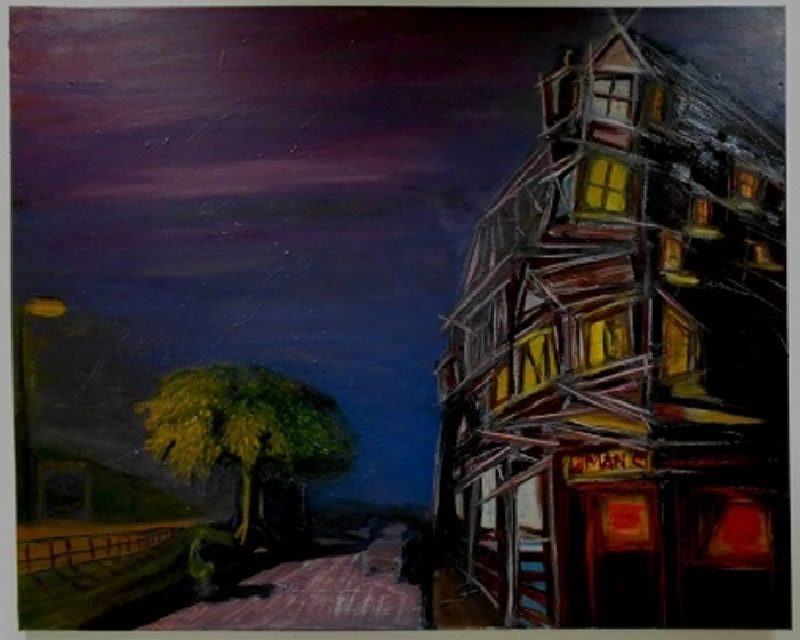
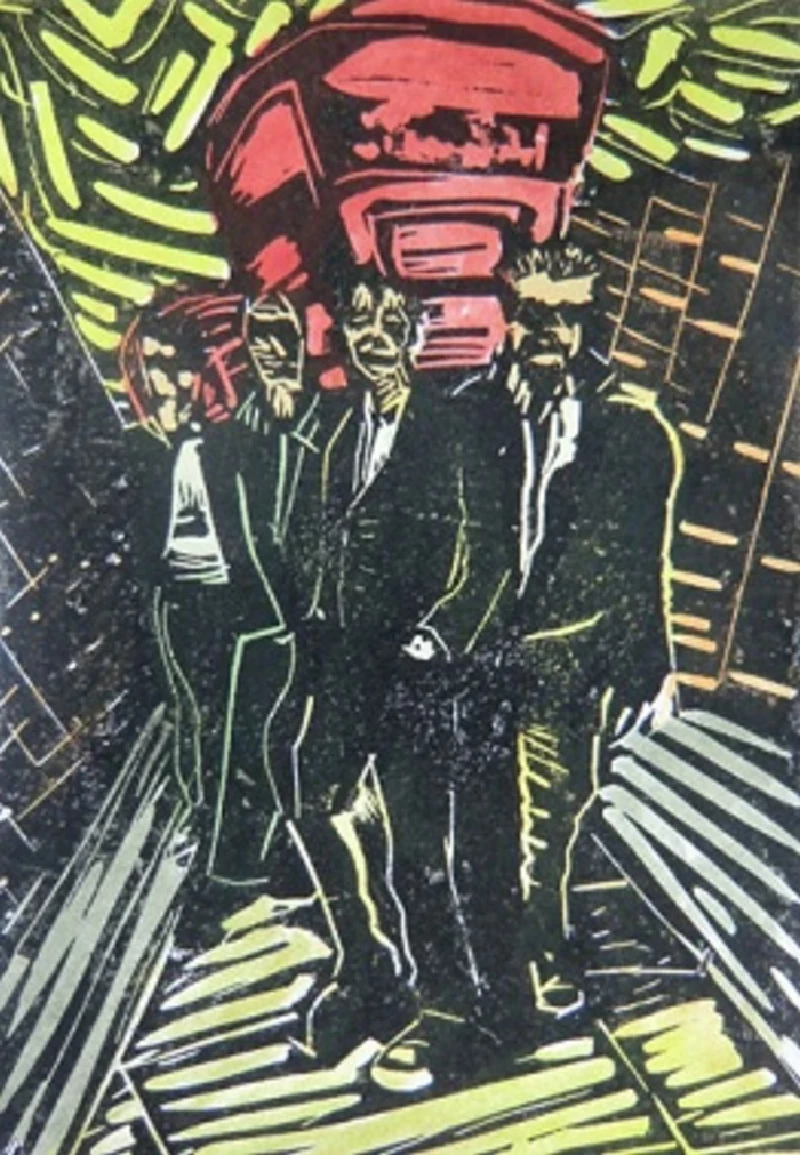
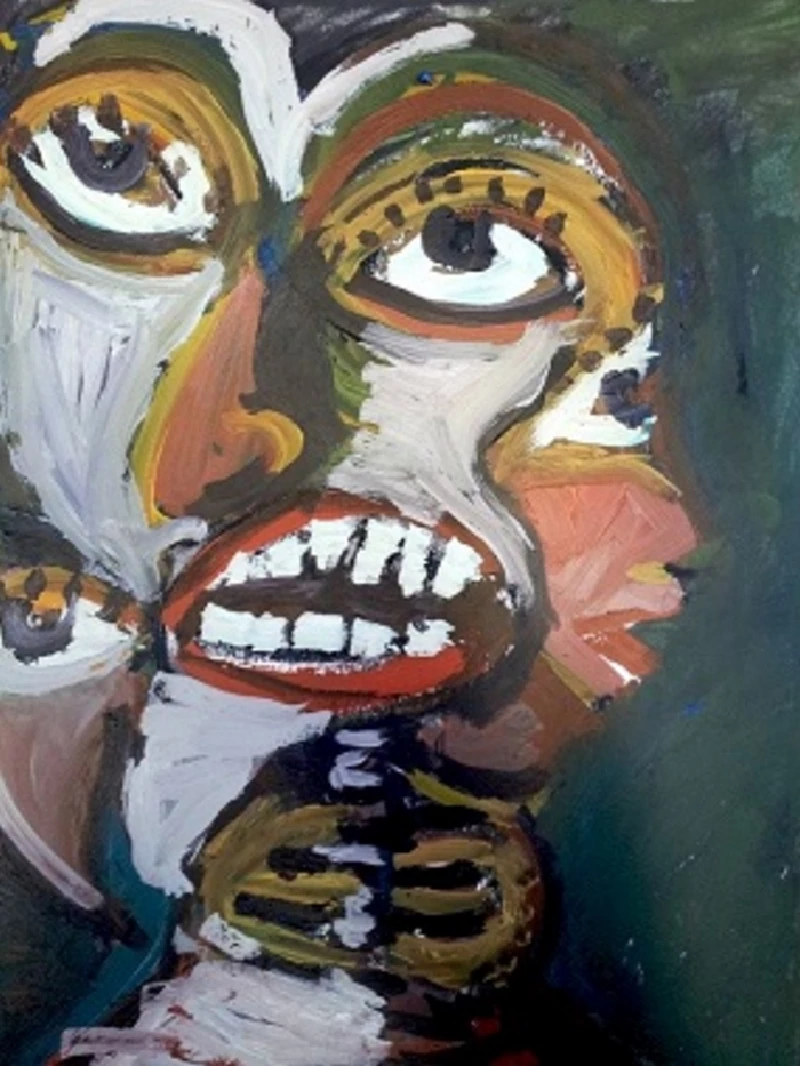
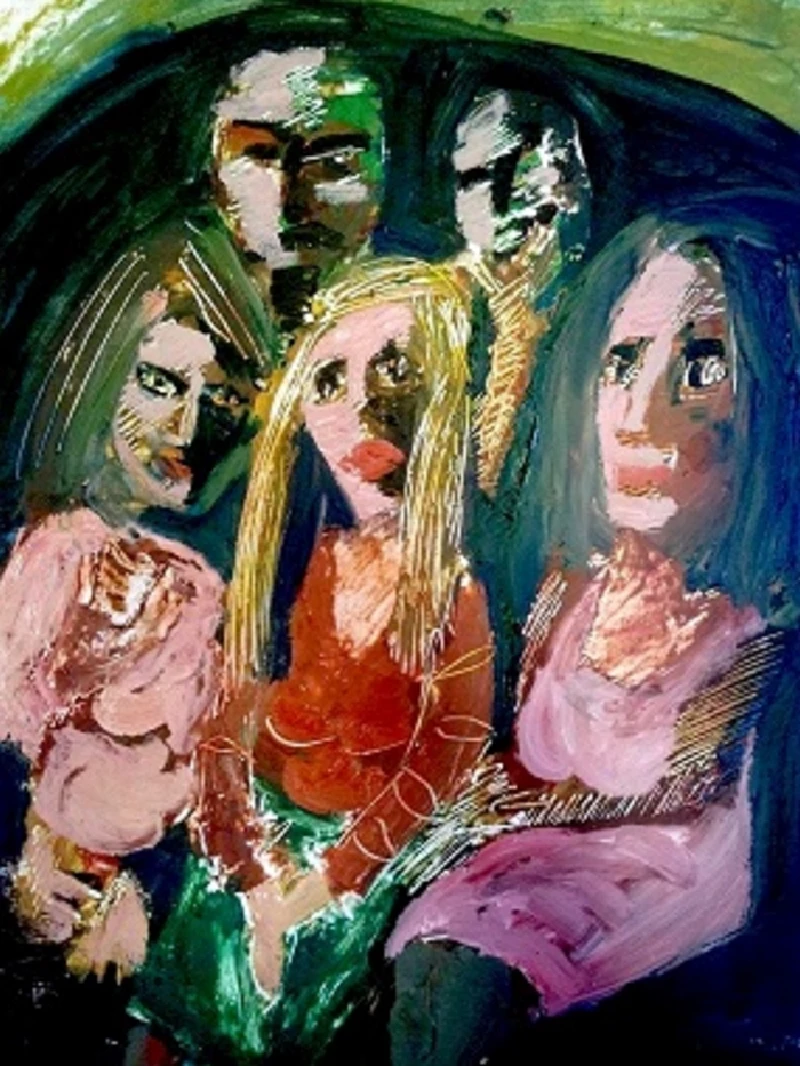
live reviews |
|
Cabaret Voltaire, Edinburgh, 6/2/2010 |
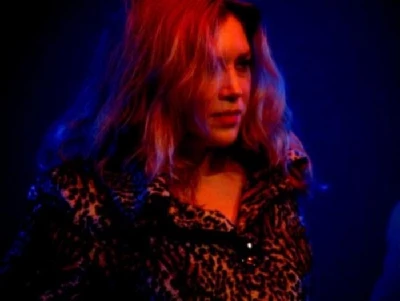
|
| At the launch gig for their second album 'Dark Passenger', John Clarkson watches Isa and the Filthy Tongues play an enthralling set of alt.rock, but finds them relying too much on thjeir past rather than present catalogue |
reviews |
|
Big Star (2009) |
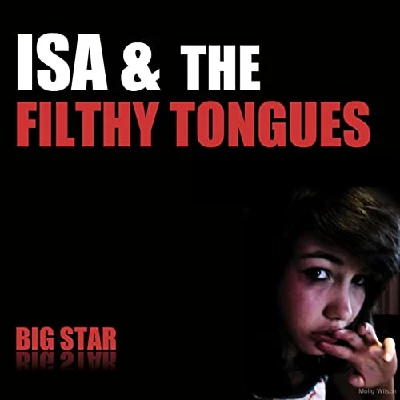
|
| Disturbing, but forceful new single from Edinburgh-based post-punks, Isa and the Filthy Tongues |
| New Town Killers (2009) |
most viewed articles
current edition
Carl Ewens - David Bowie 1964 to 1982 On Track: Every Album, Every SongArmory Show - Interview with Richard Jobson
Colin Blunstone - Thalia Hall, Chicago, 16/7/2025
Visor Fest - Valencia, Spain, 26/9/2025...27/9/2025
Bathers - Photoscapes 1
John McKay - Interview
Loft - Interview
Billie Eilish - O2 Arena, London, 10/7/2025
Robert Forster - Interview
Sir Tim Rice - Interview
previous editions
Heavenly - P.U.N.K. Girl EPManic Street Preachers - (Gig of a Lifetime) Millennium Stadium, Cardiff, December 1999
Beautiful South - Ten Songs That Made Me Love...
Oasis - Oasis, Earl's Court, London, 1995
Pixies - Ten Songs That Made Me Love...
Boomtown Rats - Ten Songs That Made Me Love....
Prolapse - Interview
Trudie Myerscough-Harris - Interview
Peter Perrett - In Dreams Begin Responsibilities Interview Part One
Simon Heavisides - Destiny Stopped Screaming: The Life and Times of Adrian Borland
most viewed reviews
current edition
Amy Macdonald - Is This What You've Been Waiting For?Sick Man of Europe - The Sick Man of Europe
Lucy Spraggan - Other Sides of the Moon
Phew, Erika Kobayashi,, Dieter Moebius - Radium Girls
Davey Woodward - Mumbo in the Jumbo
Alice Cooper - The Revenge of Alice Cooper
Bush - I Beat Loneliness
Suzanne Vega - Flying With Angels
Blueboy - 2
Cynthia Erivo - I Forgive You
related articles |
|
Filthy Tongues: Interview (2016 |
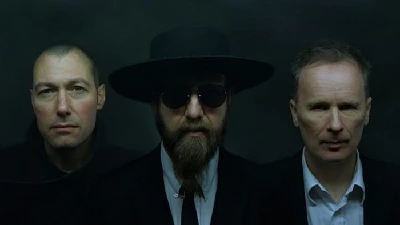
|
| John Clarkson speaks to Derek Kelly, the drummer with Edinburgh-based alternative rock trio the Filthy Tongues, about 'Jacob's Ladder', their debut album, which examines the hidden under surface of their native city |
Pennyblackmusic Regular Contributors
Adrian Janes
Amanda J. Window
Andrew Twambley
Anthony Dhanendran
Benjamin Howarth
Cila Warncke
Daniel Cressey
Darren Aston
Dastardly
Dave Goodwin
Denzil Watson
Dominic B. Simpson
Eoghan Lyng
Fiona Hutchings
Harry Sherriff
Helen Tipping
Jamie Rowland
John Clarkson
Julie Cruickshank
Kimberly Bright
Lisa Torem
Maarten Schiethart